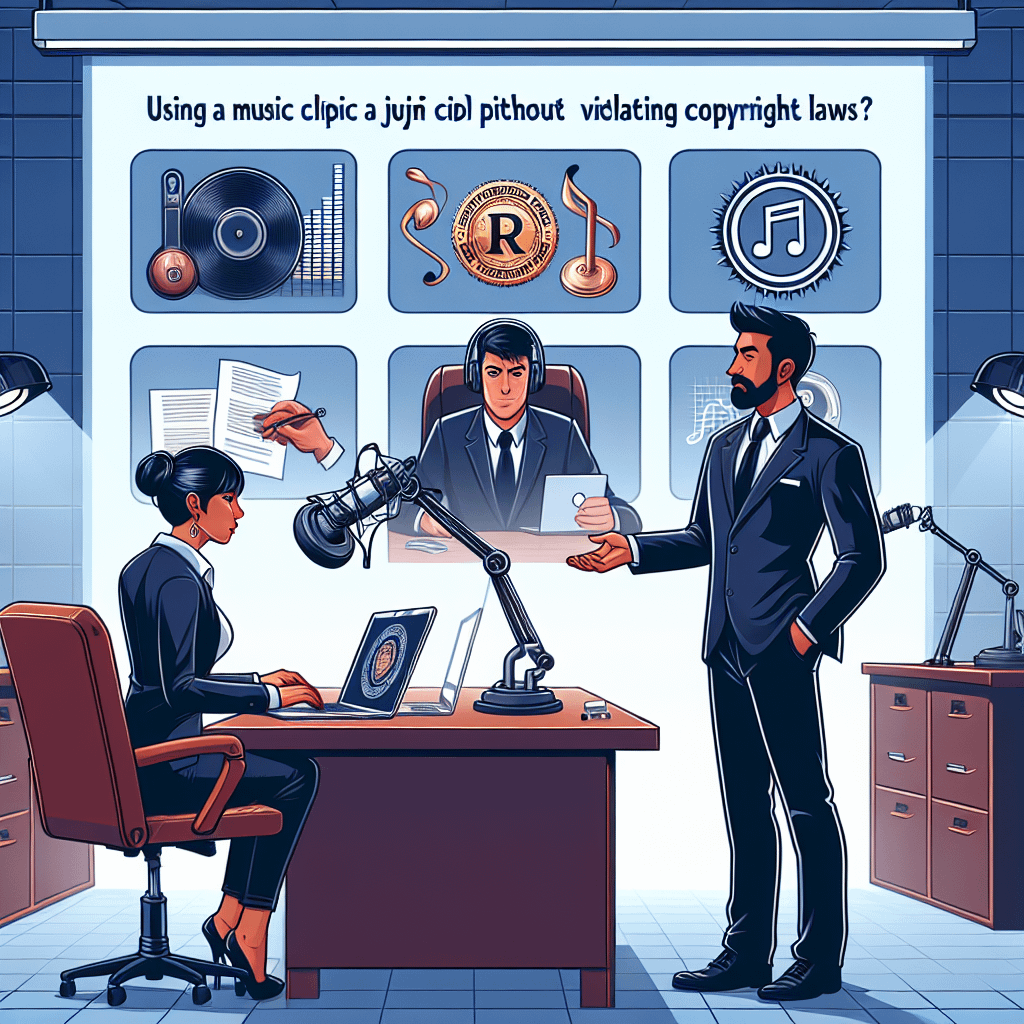Creating a podcast is an exciting journey. It’s a chance to dive deep into topics you’re passionate about, share your unique perspective, and connect with a like-minded audience. But when it comes to incorporating music into your podcast, you might wonder: “Can I legally use a music clip without running into copyright issues?” Let’s explore this in a straightforward, approachable way so you can navigate these waters confidently.
What is Copyright, Anyway?
Before we jump into the nitty-gritty, let’s understand what copyright is. Copyright gives creators exclusive rights over the use of their original works. If a song is protected by copyright, that means the creator (usually the musician or the record label) has the exclusive rights to reproduce, distribute, perform, or display it. Using someone else’s copyrighted material without permission could potentially lead to copyright infringement, landing you in hot water.
Can You Use a Music Clip in Your Podcast?
The short answer is: yes, but with conditions. Here’s how you can use music in a legally sound way:
1. Pay for a License: The most straightforward and safest path is obtaining a license. This means you are seeking permission directly from the copyright holder, which could be the artist, a music publisher, or a licensing agency. There are two common types of licenses you’ll hear about:
- Synchronization License: Allows you to use music as part of a multimedia project, such as a podcast.
- Master License: Lets you use a specific recording of a piece of music.
These licenses aren’t free and can vary in cost depending on the song’s popularity and intended use.
2. Use Royalty-Free Music: If you’re wary of the licensing costs, consider using royalty-free music. Websites like Artlist, Epidemic Sound, or Free Music Archive offer extensive libraries of music that you can incorporate into your podcast, usually for a subscription fee or one-time payment that grants you the rights to use their songs.
3. Creative Commons Music: Some artists release their work under Creative Commons licenses, permitting others to use their music freely with certain conditions. Each Creative Commons license is different, and it’s crucial to verify the terms. Some might require attribution (crediting the artist), while others may restrict commercial use.
4. Fair Use Doctrine: You might have heard about “fair use,” which is a legal doctrine allowing limited use of copyrighted material without permission, under certain circumstances. In the U.S., fair use could apply if you’re using music for purposes such as commentary, criticism, or parody. However, fair use is complex and subjective, and relying on this defense can be risky unless you thoroughly understand its nuances.
Tips for Using Music Legally
- Be Prepared to Ask: Even if you plan to use only a short clip, it’s essential to seek permission if you’re concerned about copyright infringement. Start by reaching out to the copyright owner, explaining how you intend to use their work.
- Look for Podsafe Music: Often, artists or labels will label their work as “podsafe,” meaning they’ve expressly allowed podcasters to use it freely or under specific conditions.
- DIY Your Music: If you have a musical flair or know someone who does, creating custom music for your podcast can be a fun and effective solution, eliminating copyright concerns altogether.
A Quick Example
Imagine you host a podcast about travel. You want to use a snippet of a popular Beatles song to set the mood for a segment about Liverpool. Despite it being just a short clip, the song is still protected by copyright, and using it without permission could result in a notice to take it down, or worse, potential legal action. Instead, consider looking for a Liverpool-inspired track on a royalty-free site or commissioning a musician to compose something uniquely yours.
In summary, using music in your podcast is entirely possible within the boundaries of copyright law if you plan appropriately. By understanding licenses, exploring royalty-free and Creative Commons options, or even collaborating with musicians, you can enrich your podcast with music while staying on the right side of the law. Happy podcasting!








